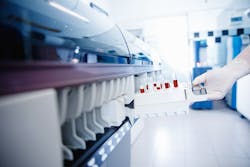The crashing and burning of former media darling Theranos, the blood diagnostics startup headed by Elizabeth Holmes, is by now firmly embedded in the popular culture. In-depth reporting by the Wall Street Journal's John Carreyrou in his bestseller Bad Blood, countless news articles, and the HBO documentary The Inventor have sealed the popular perception of Theranos as a fraud built on a lie and wrapped in a secret. Holmes's quirky antics—Steve Jobs-like black turtlenecks and possibly affected baritone voice—enliven late- night comedy skits and add to the general fascination with how she went, in a few years, from Stanford dropout to world's youngest self-made female billionaire to facing decades in federal prison.
Holmes’ trial is under way as I write this, rekindling the public discourse on this most public of crash-and- burns. A fraud is a fraud, and the sooner uncovered, the better. Initially I withheld judgment on Holmes (not being remotely involved with her or her company); then evidence started to surface. Ultimately the courts will determine whether Holmes and her associates are guilty. Meanwhile, no one is shedding too many tears for her self-inflicted wounds, although the many people she dragged down into the mud (or worse) with her might be deserving of greater sympathy. And for Ian Gibbons (whom I briefly worked with long ago), the world-class scientist recruited by Holmes who committed suicide rather than be blackmailed into perjuring himself in deposition, any justice will come too late.
With any public outrage, however, the almost inevitable trampling tends to overrun otherwise entirely unrelated people and things simply due to their being in the wrong place at the wrong time. Try being in the telecom industry in the early 2000's aftermath of the dotcom bust (hand raised here) or in real estate during the Great Recession. With the broad popular indignation following the revelations in the Theranos case, this kind of guilt-by-association has spread, oil-spill-like, to blood diagnostics companies and to high-tech startups generally. Silicon Valley blood diagnostics startups have been particularly caught up in the resulting cloud of suspicion.But while even a small measure of greater early skepticism on the part of investors, board members, reporters, and others could have prevented the Theranos debacle from becoming as damaging as it did, the natural reaction to this egregious duping—widespread suspicion of anything remotely related to it—runs the risk of being even more damaging. One might be tempted to cast aspersions widely, but this kind of undifferentiated reaction can inflict bigger and longer-lasting damage than its original blonde, black- turtlenecked trigger.
Blood diagnostics is a fundamental part of modern health care: try living with diabetes, or figuring out whether you need antibiotics for a strep throat, or managing cholesterol levels, without it. The number of tests available through an analysis of a blood draw is in the many hundreds, ranging from the routine to the lifesaving. While no test is perfect, they are far better than no test, and tens of thousands of people work every day to improve them.
Some of those people, and the companies they work for, are now suffering collateral damage from the Theranos affair. Venture capitalists (already averse to funding the kind of capital-intensive, long-incubation bets usually necessary to bring new biomedical tools to the market) are now avoiding blood diagnostics like the plague. And diagnostics startup founders suddenly find themselves having to explain why they're not "the next Theranos."
I have worked in the field of blood analysis for almost 20 years. Blood diagnostics is hard. It takes time, it takes money, and it takes tremendous effort. Yet it is supremely worth all of the above. Having lost my father to pancreatic cancer when he was 66, I am heartened every time I hear about a new biomarker that might hold the promise of early detection of this most elusive and deadly of tumors. And having watched my mother suffer from and ultimately succumb to cognitive decline, new tests showing promise in picking up the first signs of brain deterioration from Alzheimer's disease and other forms of dementia take on a new meaning.
It's worth remembering that for all the sensationalistic headlines dedicated to the few, countless more people work tirelessly, anonymously, to make better tools, better tests, better lives. There is nothing inherently wrong with aiming to radically reinvent an entire industry. Many entrepreneurs are trying to do just that, and some are succeeding. However, they are not, overwhelmingly, “the next Theranos.” They—we—are not pretending to run a test on their machine while secretly running it on another. They tend to welcome independent testing of their innovations, because they understand that the more people see for themselves that they’ve made a breakthrough, the better. And they generally prefer to bring into their circles people knowledgeable about their technology or industry, rather than celebrities. They are, in fact, the opposite of Theranos.
So, hopefully, justice will run its due course, and people will or will not go to jail. Bad patents will eventually be invalidated. New tests, ones that work, will be invented and validated, and may even transform the field. But let’s not throw the baby out with the Theranos bathwater. Researchers, inventors and entrepreneurs— honest, data-driven, dedicated researchers, inventors and entrepreneurs—deserve our (reasoned) support. A startup you summarily dismiss may well hold the key to a diagnostic breakthrough.
This is an opinion piece written in December 2021 by Kinetic River Corp. Founder and President Giacomo Vacca.

